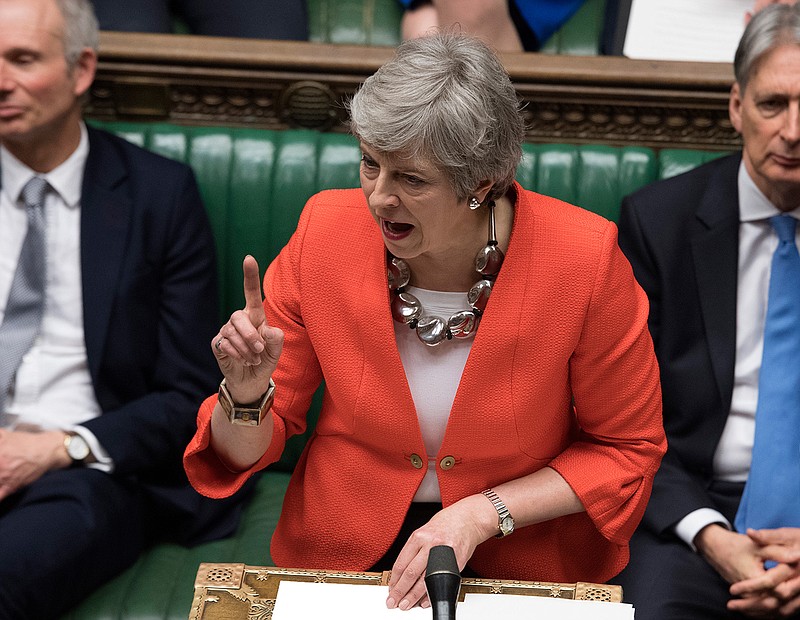LONDON-Her voice is hoarse from talking, her authority waning, and her overriding political goal-taking Britain out of the European Union with a negotiated deal-seems like a mirage.
Yet British Prime Minister Theresa May keeps going, declining to resign despite two successive parliamentary defeats of historic proportion. She is still pushing her agreement, ignoring ample evidence that Parliament won't buy it and the Europeans won't sweeten it.
Britons seem divided between expressing admiration for her fortitude and wondering how badly her head must hurt from continually banging it against the wall.
Her position is weak: May leads a minority government that depends on a small Northern Ireland party to keep her in power, and that party-and many of her own Conservatives-have twice voted against her withdrawal plan.
The Times newspaper has concluded that May be close to the end of the line, pointing out in its editorial Wednesday that "under any normal circumstances" May would be expected to resign after two resounding defeats on her signature proposal.
May, 62, has survived two direct threats to her leadership, one from within her Conservative Party brought by Brexiteers unhappy with her moderate approach, and one brought by opposition Labour Party leader Jeremy Corbyn, who tried but failed to force a general election.
At times it seems May's moderate position on Brexit has displeased almost everyone, and her inability to win a vote in Parliament has exasperated European leaders, who spent more than two years working on the deal that is now floundering.
Fellow Conservative Party lawmaker Nick Boles says May is "a control freak" who has greatly restricted Parliament's ability to consider other possible paths to Brexit that might actually get approved.
"She hasn't allowed Parliament to explore what alternative compromises we might support," he told BBC radio. "People keep saying there is no majority for any compromise. We don't know that. We've never been allowed to debate and vote on anything other than her deal."
Conservative Party lawmaker Charles Walker said Britain has come to admire her strength.
"She is far more popular than any single politician in this country," he said. "People actually recognize her as someone who has grit, character, courage and persistence."
One irony is that May didn't back Brexit in the first place. She served in the difficult job of Home Secretary when Prime Minister David Cameron called the 2016 referendum, and she argued that Britain's interests would be better served by staying in the EU.
That's one reason many Brexiteers are suspicious of her motives, and anxious to replace her with a politician seen as a true believer.
She did embrace Brexit after the referendum, and outsmarted and outmaneuvered more prominent figures, including Johnson and Justice Secretary Michael Gove, to become party leader and prime minister.
But she blundered badly by calling an early election in 2017 that resulted in her party losing its majority, which has made it much more difficult to win passage of the withdrawal agreement.

